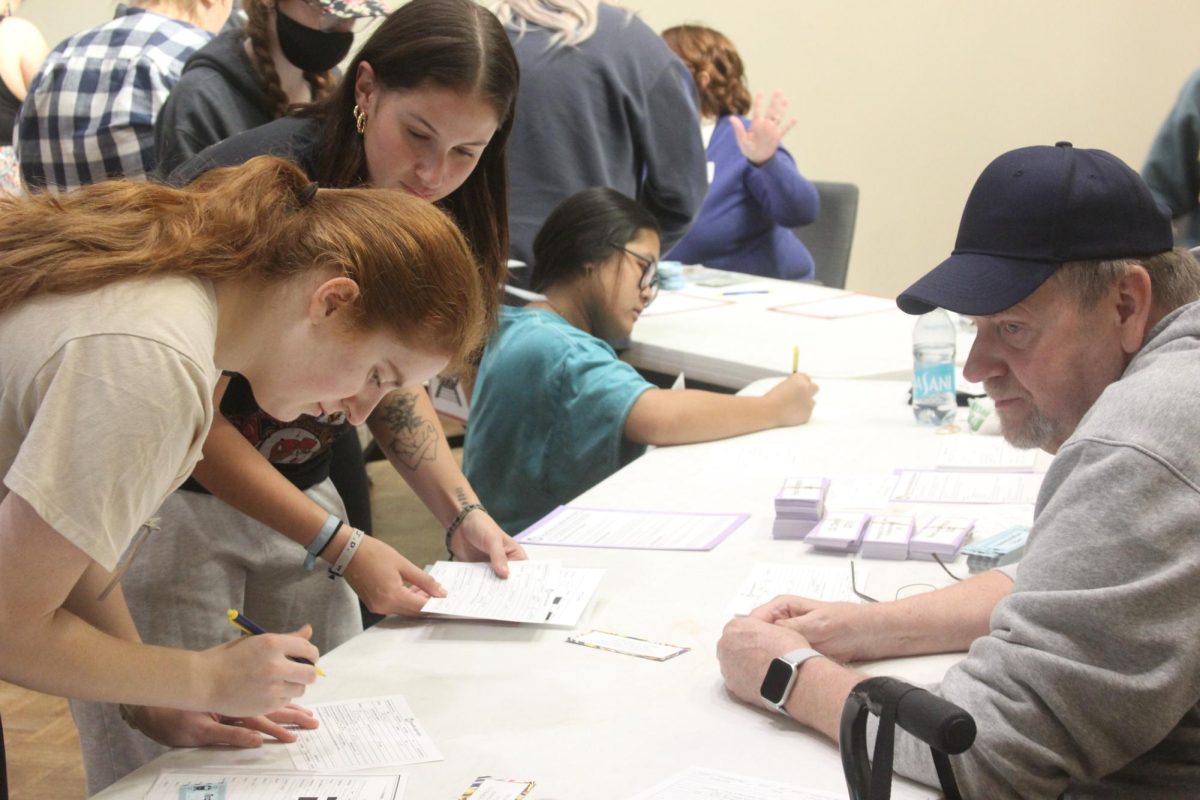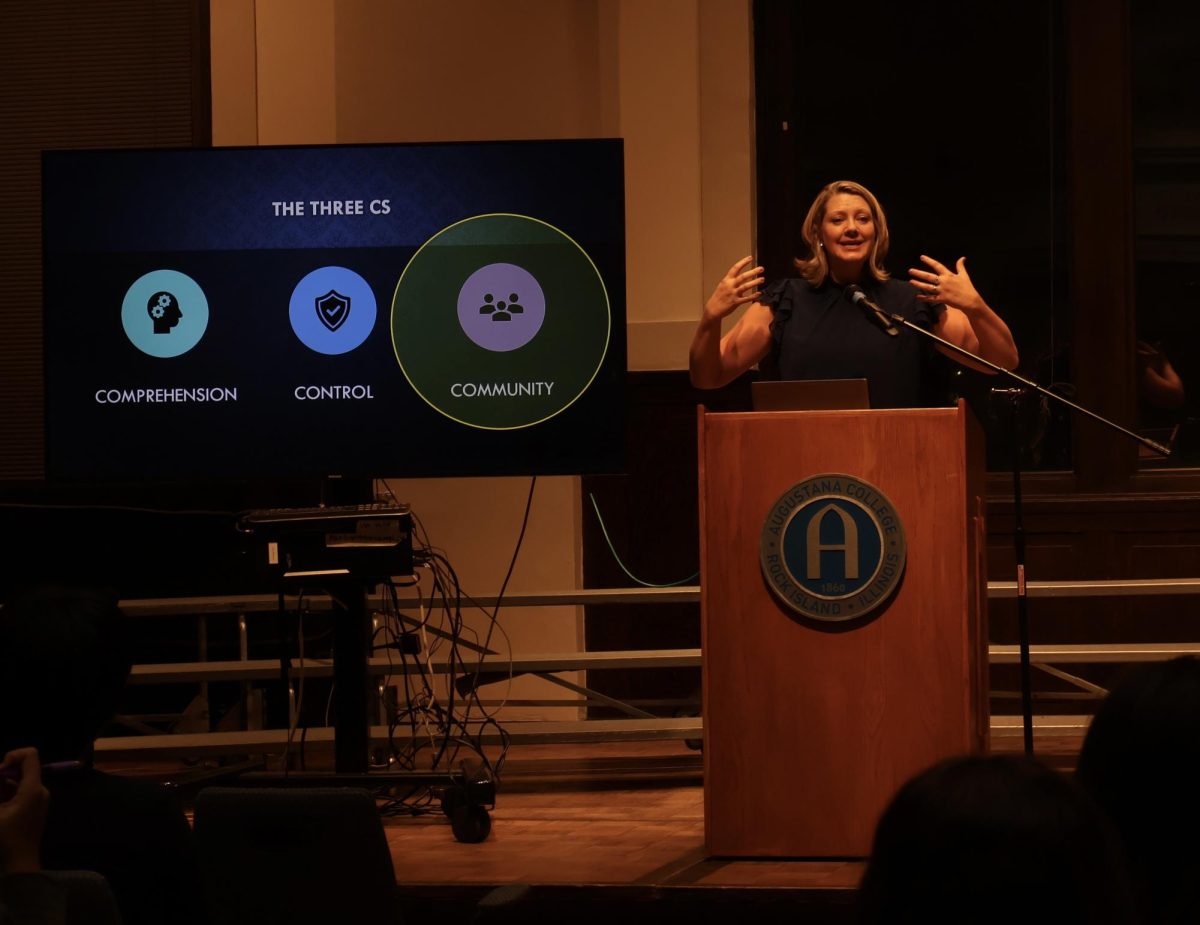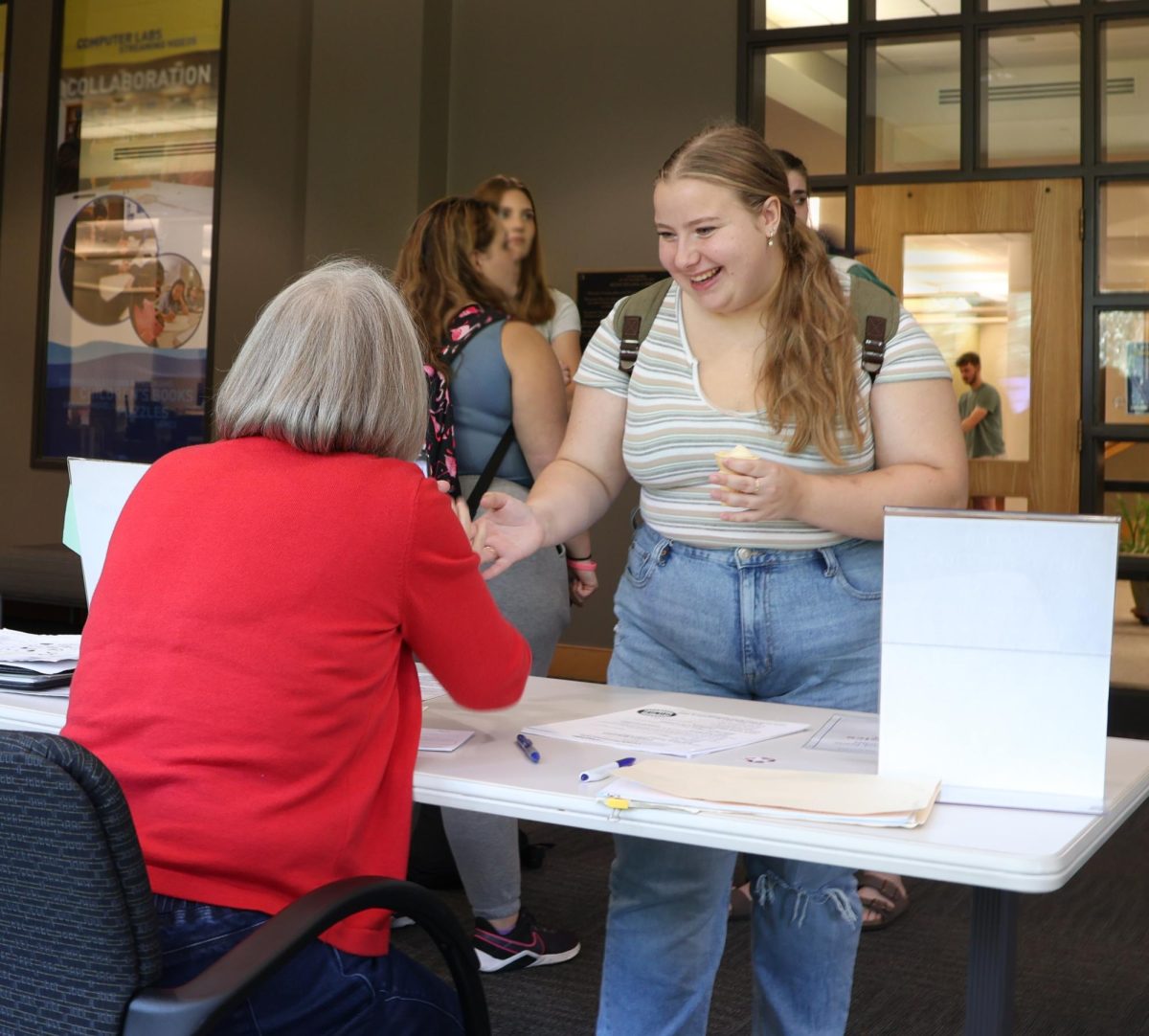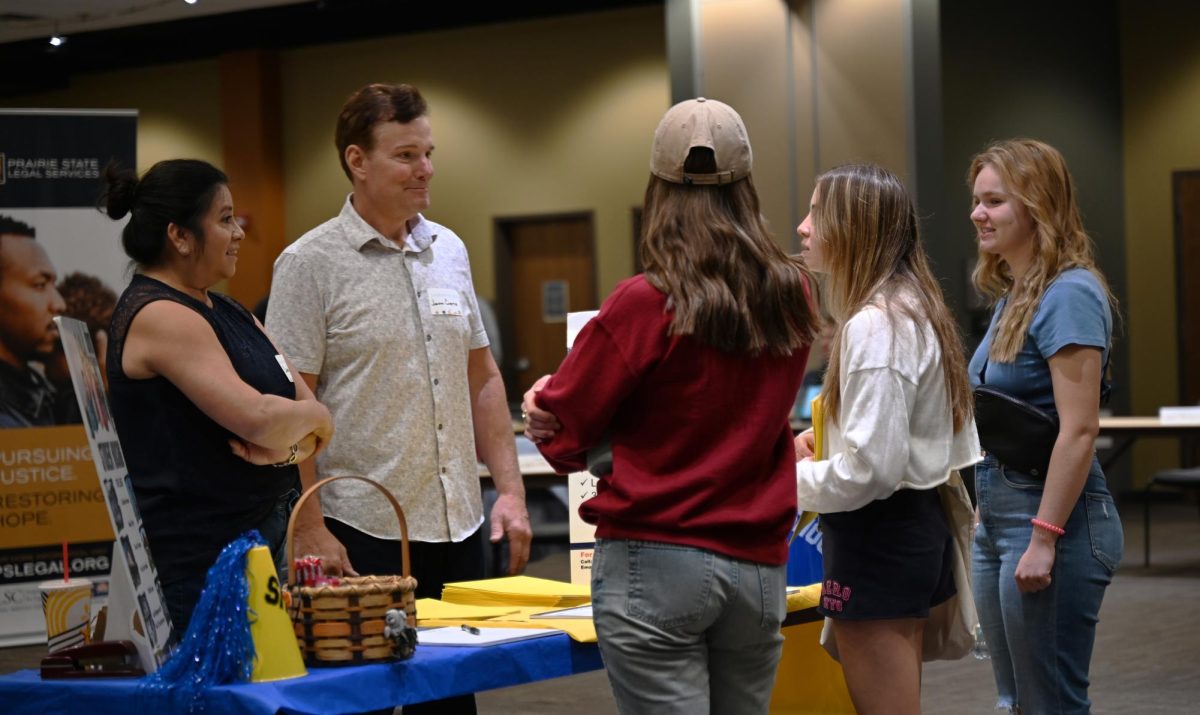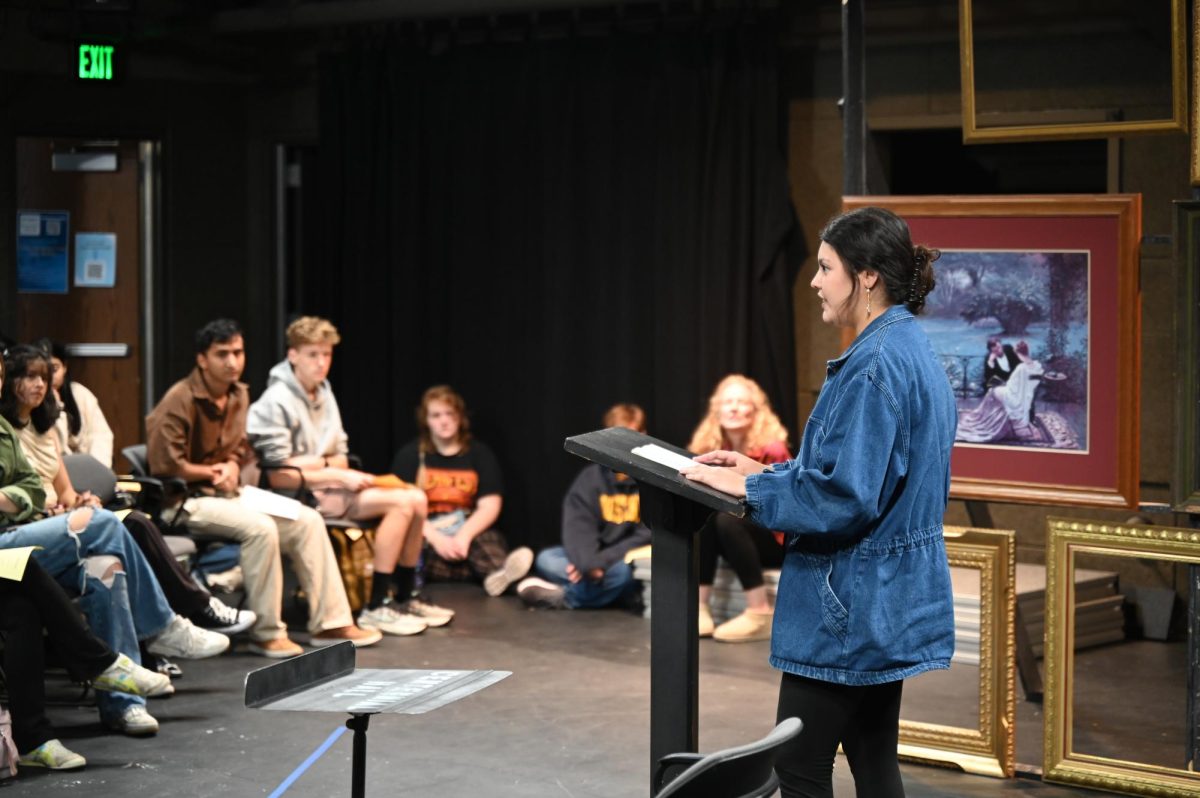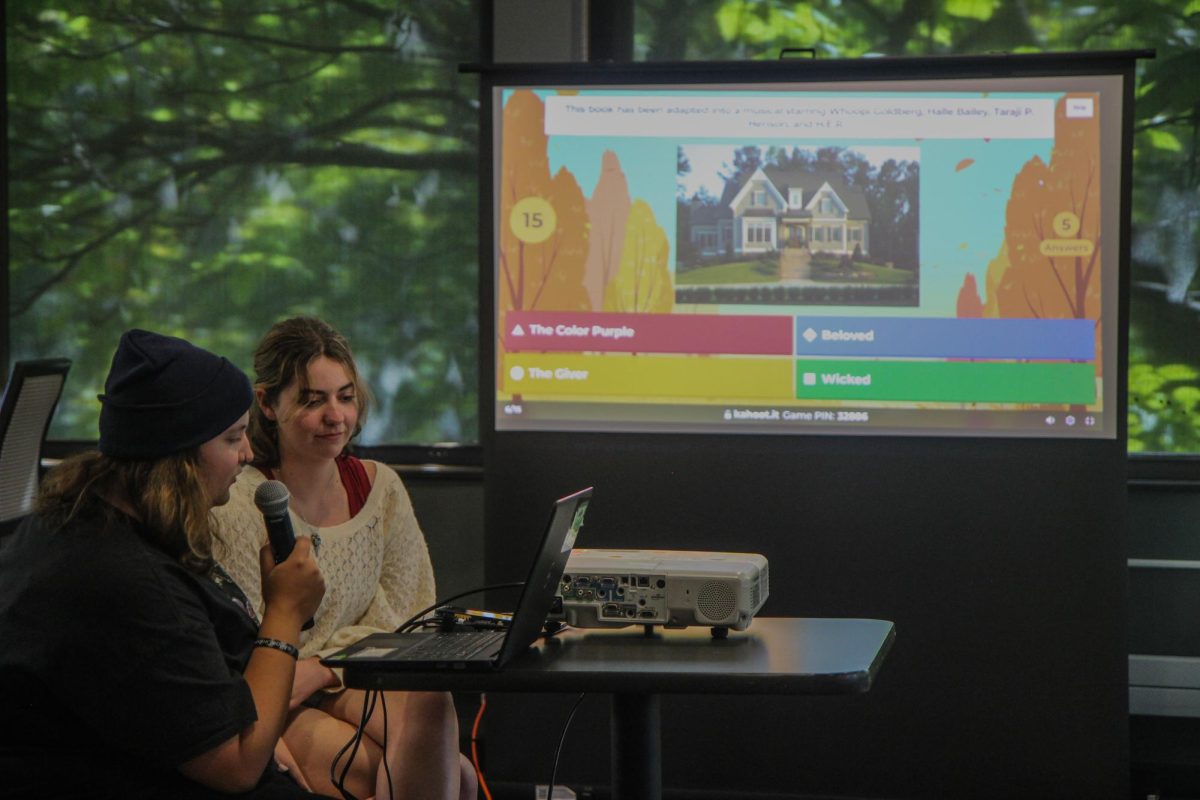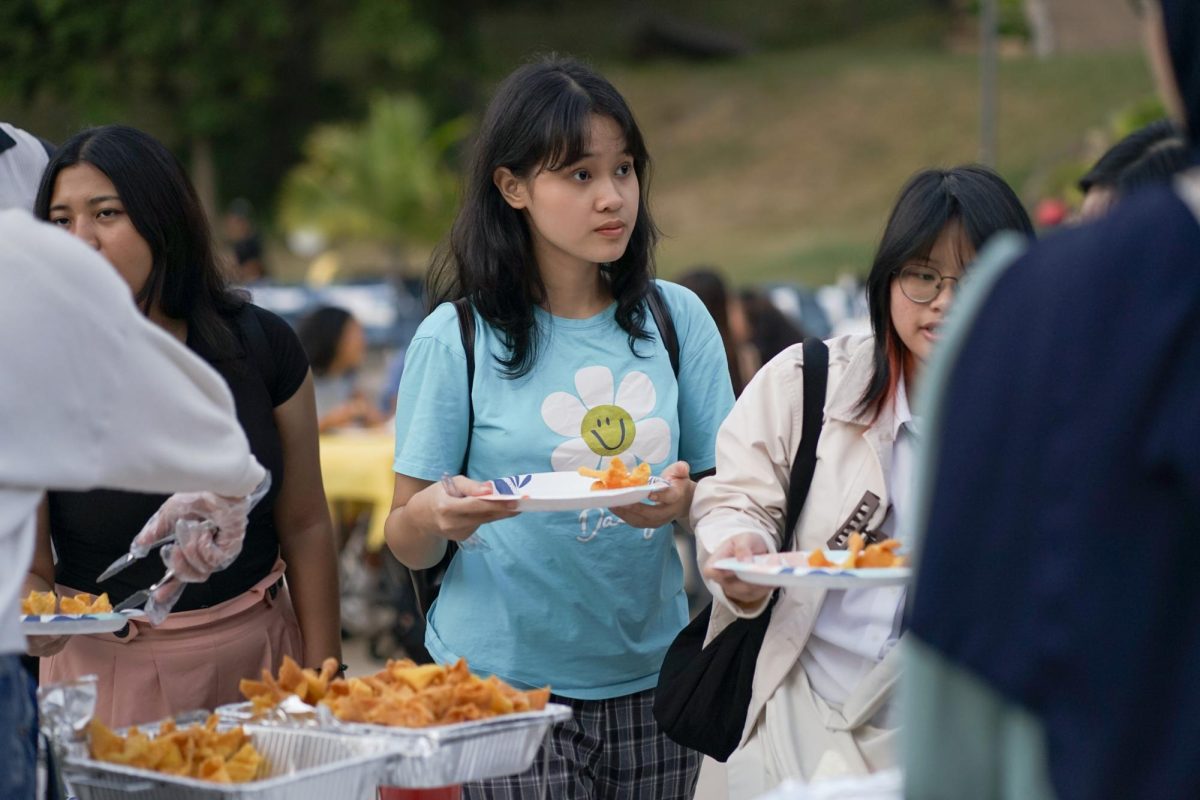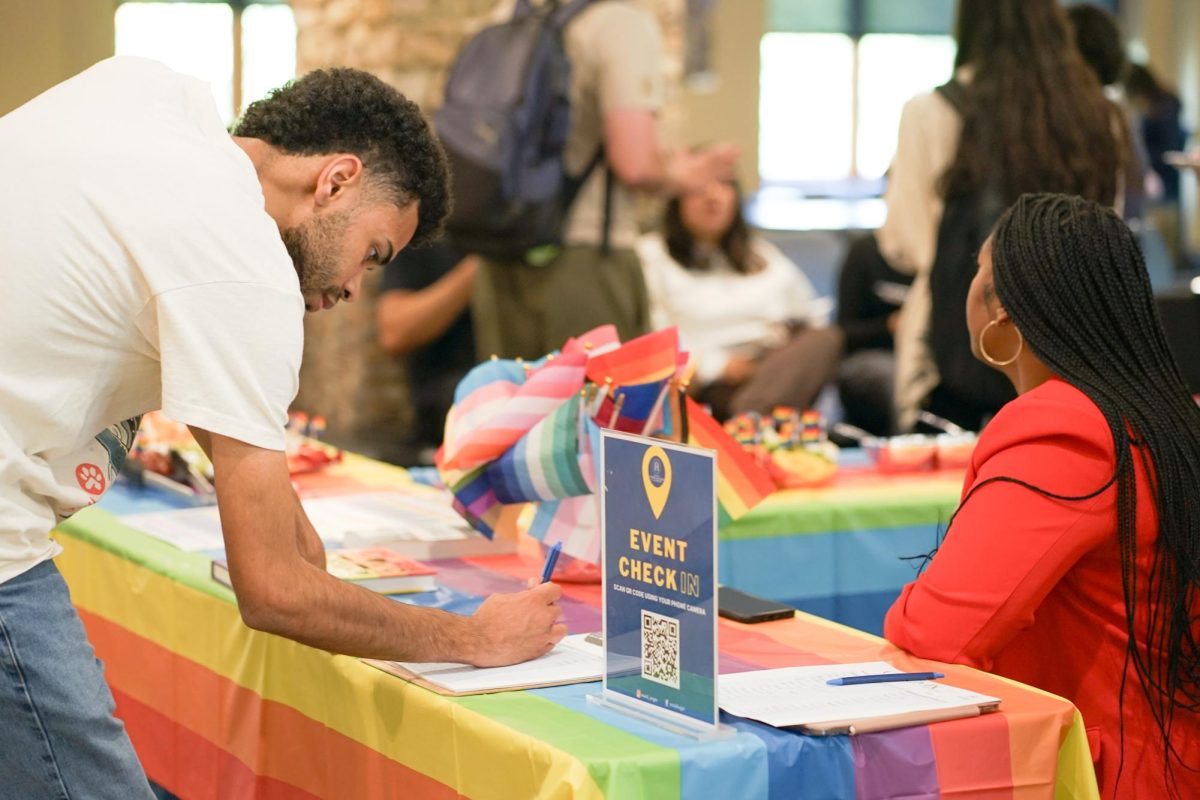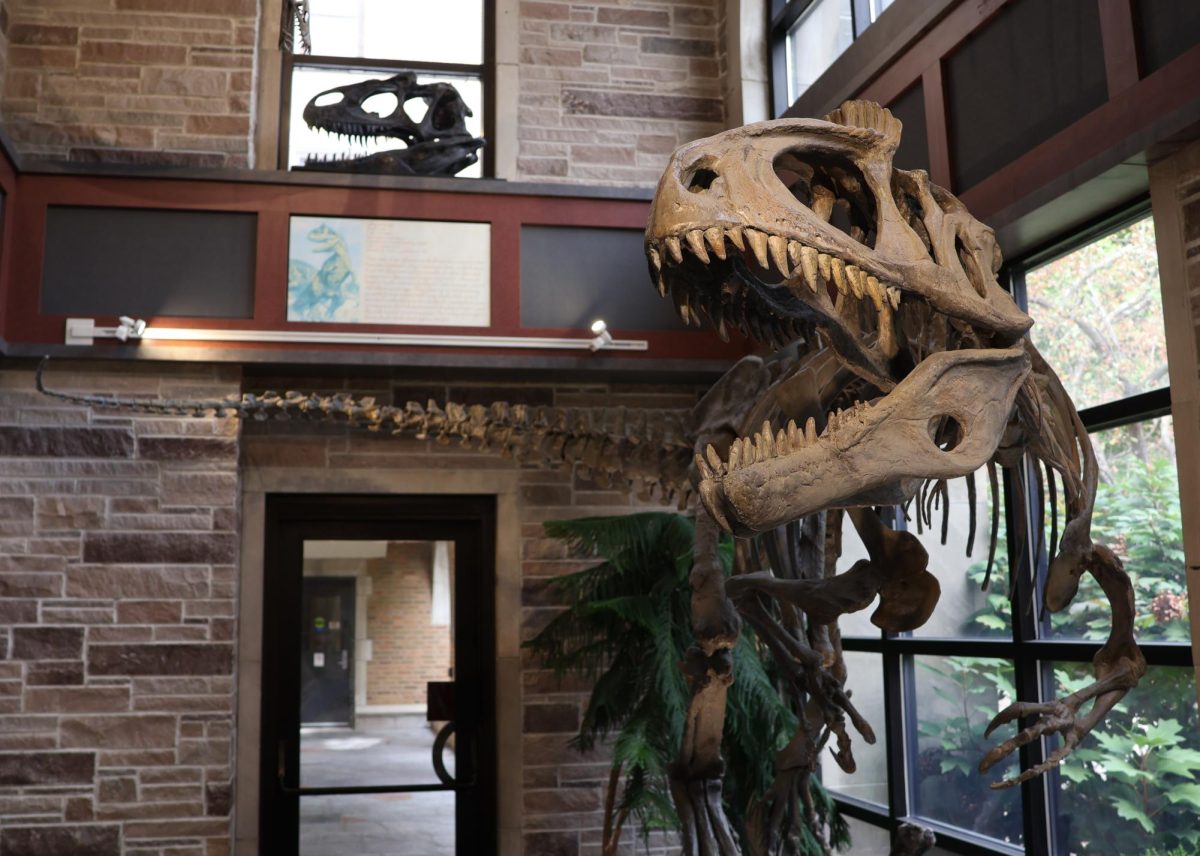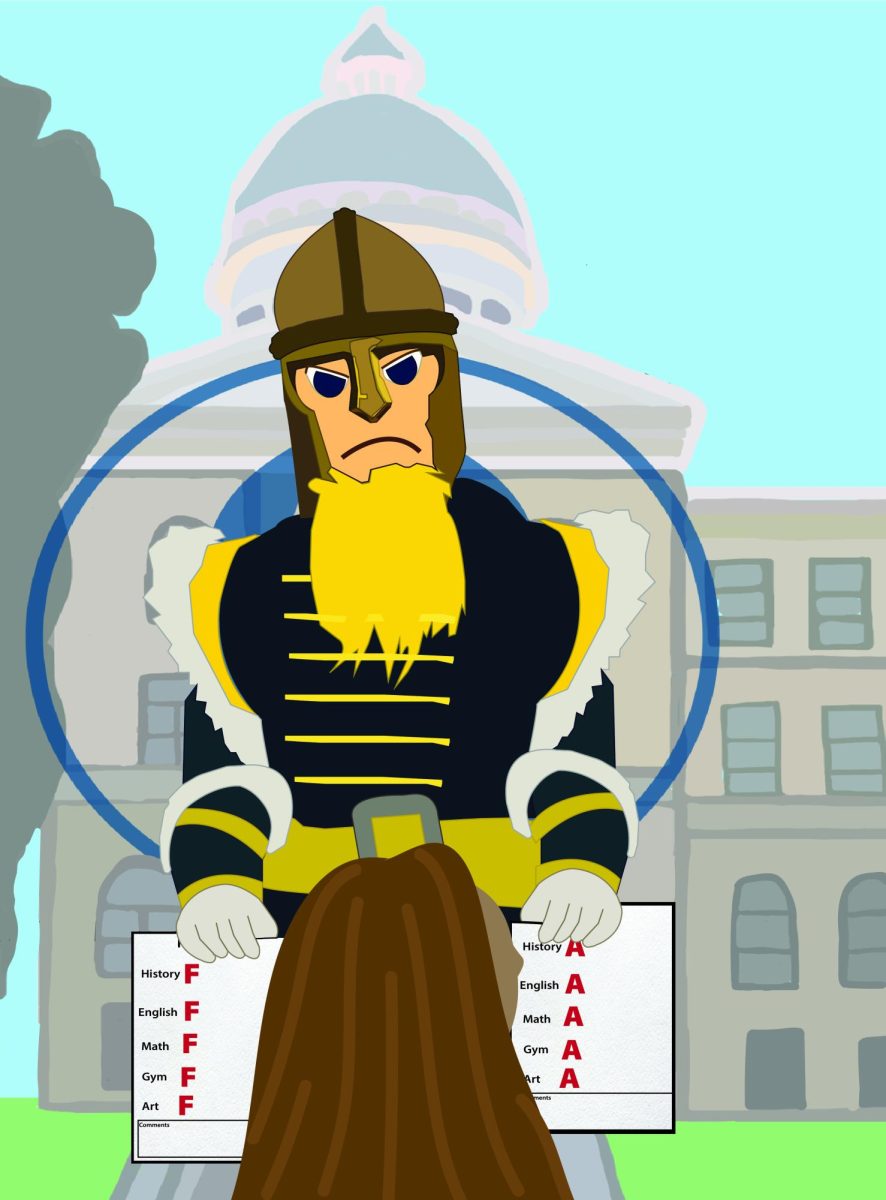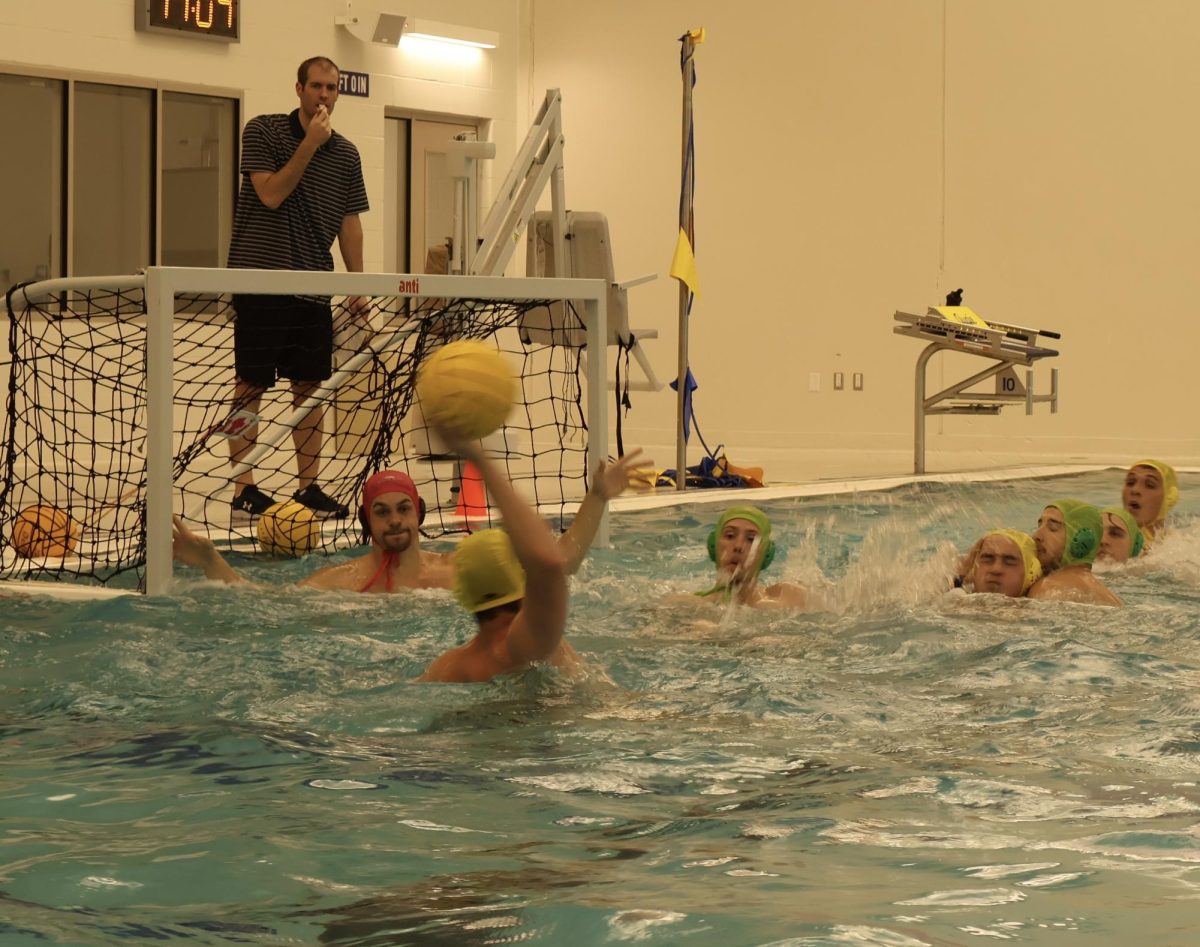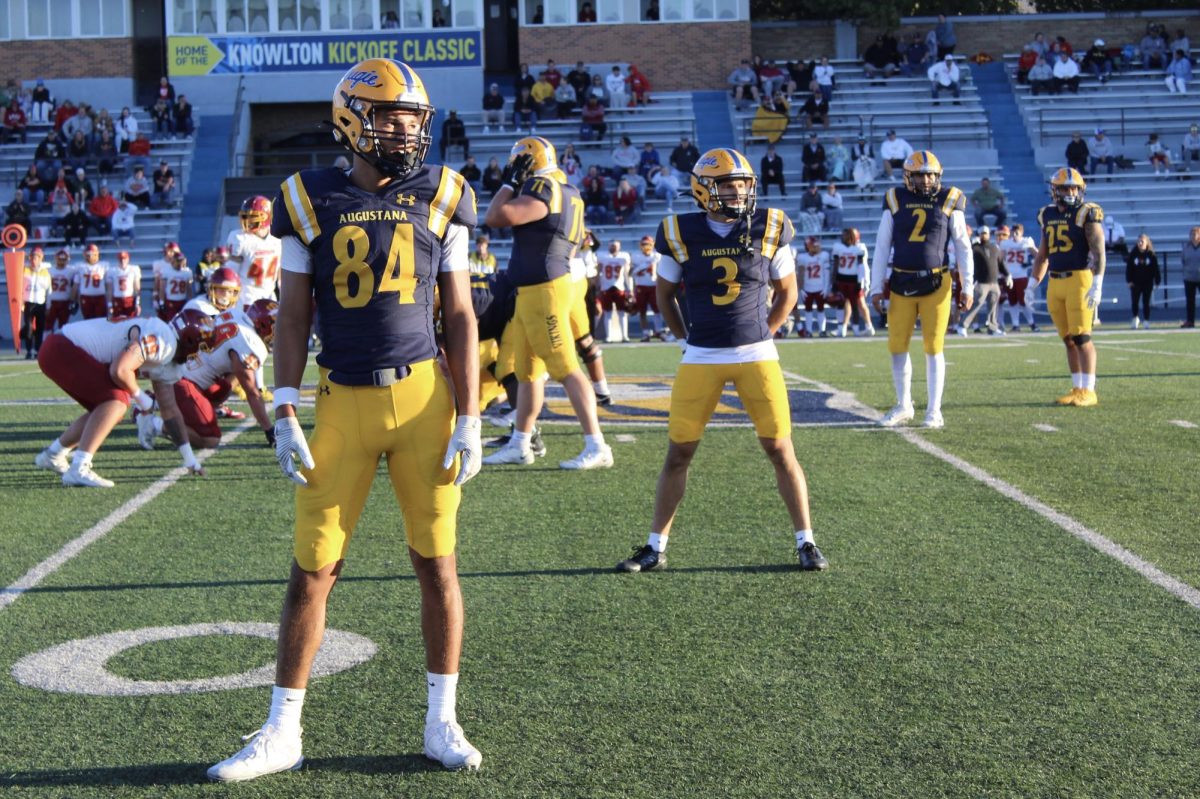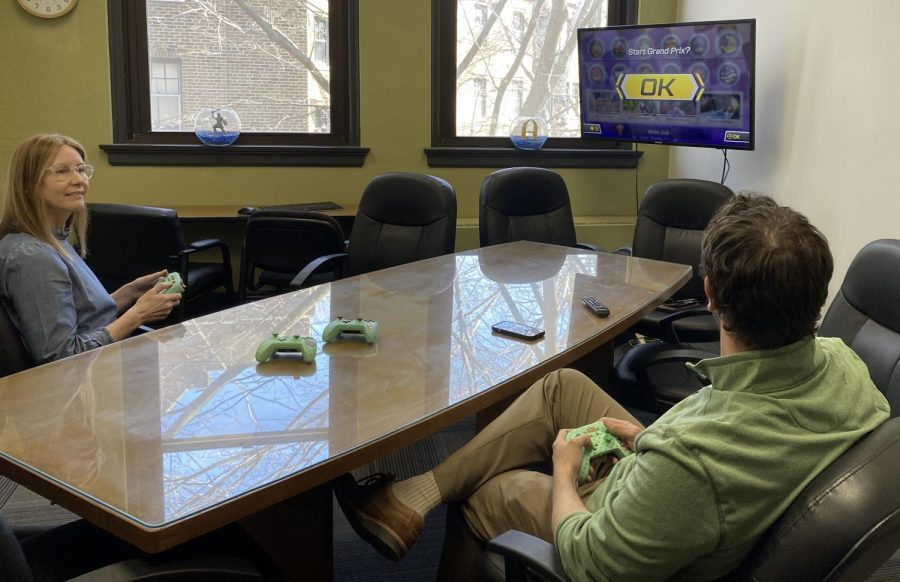Pledging for the Support Squad: Groups outside of Greek Life
Ann Oakes and Bill Lavarone preparing to start a Mario Kart race.
February 25, 2023
As the school year gets busy, it becomes more difficult to balance social and academic areas of life. That anxiety can be managed by making mental health a priority. The Dean of Students and student counseling services recognize this need and actively take steps to create a more calming environment for students. Through their new Support Squad, students have the opportunity to play various types of games with their peers to deepen connection and build relationships.
“We wanted to create an opportunity for students who did not yet feel socially connected to have a space to come and enjoy games and connection. We know that socializing is an antidepressant activity, a mood-lifter and key in maintaining good mental wellness,” Augustana counselor Anne Oakes said.
Oakes has been a counselor here for the last several years. She explained how psychologically, socializing improves peoples’ wellbeing by helping them recognize that they aren’t alone. Relationships with others should be a priority, and this group is dedicated to fulfilling that need, according to Oakes.
“Socializing with people in any capacity is helpful, [whether it be a] close friend or acquaintance. The addition of games allows people to interact in a fun and low stress way, adding to the mood boost and feelings of connection,” Oakes said.
She emphasized how this group is not necessarily dedicated to counseling purposes but that it is intended to take time away from school to have fun and enjoy the company of others. Making connections with other students is an additional plus that comes with the entertainment of the Support Squad. Just by showing up, students are doing themselves a favor, and making their mental health a priority.
Counselor and director of the Support Squad Bill Lavarone is passionate about helping students grow as people. Lavarone used to be an English professor at a community college but felt a calling to counseling when one of his students stopped attending class due to mental hospitalization. He decided that instead of teaching stories, he wanted to learn other people’s stories and teach them how to change the narrative.
“You are responsible for your story,” Lavarone said. “No matter how much outside influence there is. In the end, if you account for all that, you still are the person that’s responsible for changing your story.”
Lavarone said being a part of the Support Squad is a positive step students can take to be accountable for their mental health. Joining the Support Squad is an active way to start prioritizing self care which will benefit each area of the students’ lives overall.
Lavarone claims that being a part of an organization or group is valuable because it helps students to recognize parts of themselves in their peers and build strong relationships. He emphasizes how attending this group is an act of self compassion.
“[Connection is] based on the idea that anybody who had your life and your experiences and your disposition would be going through the same thing. That really allows you to not feel like a burden and allows you to let go of that pain or that guilt or shame,” Lavarone said.
Watching and becoming aware of experiences from other people deepens empathy and restores how students view themselves by seeing their image in other people. Lavarone said that he thinks the Augustana community can become stronger by building relationships with each other. Overall, the goal of this group is to have fun and minimize community separation.
“You don’t have to do it in a peer support group, right? You can do it in a sorority, a fraternity, on a sports team, in a club, your class. Making that connection is really important,” Lavarone said.
Simple activities are done in the group to build relationships. There are a variety of games included, such as ones on a Nintendo Switch, Uno or other simple board games. The greater goal is just to have fun and become familiar with peers at Augustana.
Aspiring child therapist Brianna Ebenroth agrees that being connected to a group such as the Support Squad alleviates stress and helps to provide resources for students. She wants to specialize in play therapy and understands the importance of creating an environment that supports others.
“I feel like when you have that environment that’s naturally helping you relieve stress and giving you a support group, that doesn’t feel like you’re being forced to go to therapy. It’s a more natural way to just get better,” Ebenroth said.
She emphasizes how the first step the Support Squad is doing is helping people to feel more comfortable on campus. Students that attend this group are given a space to feel a sense of both peace and belonging.
“You’re able to do better when you have that calmness and those breaks,” Ebenroth said. “The group can kind of give the breaks that you need. Maybe you’ll find someone that’s in a group that has the same academic stuff, and you can get help that way too.”
Students that are involved with the Support Squad do themselves a favor by showing up. The support of other people helps them in each area of life by uplifting them academically and forming connections.
Senior Rebecca Honzel advocates for the Support Squad and wants students, especially freshmen to build their campus connectivity.
“It’s also giving freshmen a chance, if they’re not in Greek life, giving them a sense of community outside of an organization,” Honzel said.
The Support Squad is providing students with more opportunities to expand their social life. Knowing that there are other people out there with the same experiences helps people to feel accepted and supported. The Support Squad also diversifies the opportunity for students to be a part of a group. They aren’t limited to just finding themselves through Greek life or sports teams.
“We have a very diverse group of individuals who come from all different backgrounds as well as have different training, and we provide that to make it as welcoming as possible,” Lavarone said.
With the diverse staff and student status, peers have a higher chance of finding someone to relate to. The Support Squad isn’t geared towards one crowd or group of people, every individual is welcomed and has the ability to find someone to build a relationship with.
This is a space for students to come together and express themselves in a place of acceptance. The Support Squad is a judgment-free environment for students to find people that are similar to themselves. They can uniquely experience connection and find a stronger, more genuine group of friends.
If students can’t attend the Support Squad, online options provided by counseling services are available to support mental health. There are also many other support groups available on campus including NAMI, Gray Matters Collective, an LGBTQ+ support group and ASD support group. These groups are based on belonging and environmental credibility, similarly helping students to become more connected with their peers.
The Support Squad meets Mondays from 12 p.m. to 1 p.m. in the Hellstedt Conference room which is on the second floor of the Steve and Jane Bahls Campus Leadership Center.
